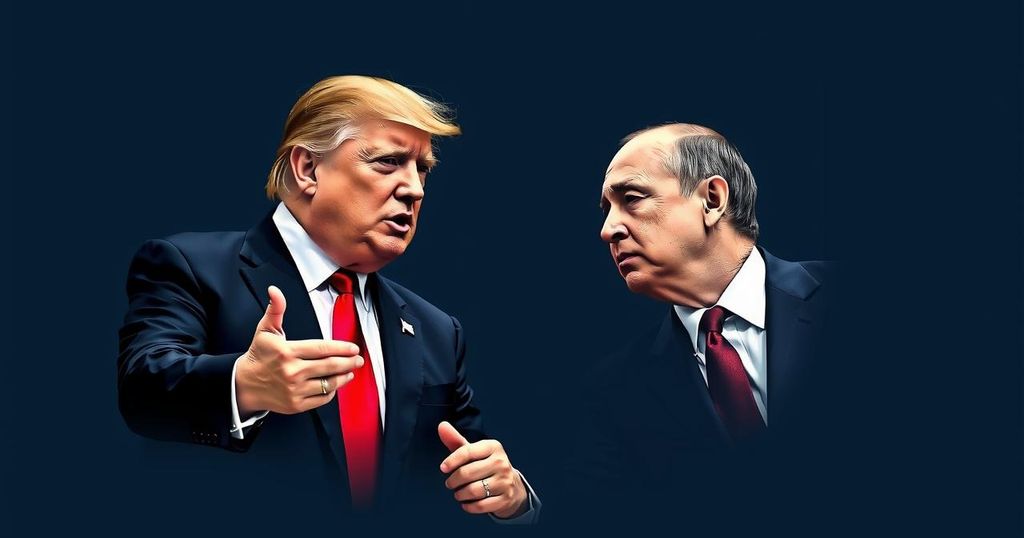Donald Trump’s bid to end the Ukraine war raises questions about his foreign policy’s impact on relations with China, Russia, and North Korea. Promising to resolve the conflict swiftly, he may face significant obstacles due to the close ties between these nations and their mutual interests in countering the West. His favorable views of Putin and Kim could complicate diplomatic efforts, as analysts suggest he will struggle to disentangle these countries from China’s influence.
The anticipated return of Donald Trump to the presidency may significantly alter relations regarding China, Russia, and North Korea, as he vows to conclude the ongoing Ukraine war. Trump has boldly claimed he could resolve the conflict within a day and has expressed more favorable views of both Vladimir Putin and Kim Jong-un compared to his predecessor, Joe Biden. This shift in perspective raises concerns that Trump might attempt to realign these alliances in a manner that could disrupt the delicate balance within China’s strategic orbit.
However, analysts contend that Trump will face considerable challenges in this endeavor. The longstanding cooperative interests of Russia, North Korea, and China in countering Western influence create a complex landscape that could complicate Trump’s diplomatic strategies. His transactional approach to foreign policy may lead to negotiations with either Putin or Kim, yet the reinforcing ties between these nations could hinder any efforts to extricate them from Beijing’s sphere of influence.
Additionally, North Korea’s recent troop deployments in support of Russia’s military operations underscore the alignment of these nations in the ongoing conflict. Such developments might further entrench their unity against Western powers and complicate Trump’s plans.
In conclusion, while Trump’s intention to swiftly end the Ukraine war and rekindle relationships with Putin and Kim Jong-un is clear, the realities of geopolitical alliances and the intertwined interests of China, Russia, and North Korea present severe obstacles. His foreign policy strategies will likely require a balance between aggressive negotiation tactics and the recognition of the existing cooperative framework among these nations, particularly in challenging the West’s influence.
The discourse surrounding Donald Trump’s potential presidency brings forth concerns about how his foreign policy approaches will impact relations with key global powers, specifically China, Russia, and North Korea. As Trump promises to rapidly end the Ukraine conflict, there is apprehension regarding his capability to separate Russia and North Korea from their strategic ties with China, especially given their mutual interests in undermining Western influence. The implications of his historical praises for leaders like Putin and Kim Jong-un are particularly relevant in understanding the complexities of these international dynamics.
In summary, Donald Trump’s proposed strategies to negotiate an end to the Ukraine war reveal significant domestic and international implications, particularly concerning China’s strategic alignment with Russia and North Korea. Although Trump’s approach may aim to establish ties with these nations, the entrenched cooperative interests of these countries in opposition to Western powers present formidable challenges. A nuanced and adaptable diplomatic strategy will be essential for Trump to navigate these complexities as he assumes office once again.
Original Source: www.scmp.com






